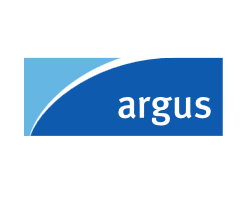India's Tata Sees Steel Demand Improving in 2023-24

By Sumita Layek
May 7, 2023 - Indian private-sector producer Tata Steel expects a better year for steel demand on the back of infrastructure and automobile sector growth but said there is "some fragility" in the international markets.
The steelmaker said there is a lot of acceleration in the infrastructure sector as there is a push to complete projects and its customers in construction companies have full orderbooks. Commercial spaces and demand for commercial and passenger vehicles are also strong. But the residential market is still a mixed bag, while sectors that are dependent on export markets are a little fragile.
"We feel that this year should end up better than last year for us because overall, we don't see the volatility that we saw last year when coal prices went to $650/t and then dropped and steel prices went to $800-900/t and then dropped. It's a little bit more within the normal band of $500/t to $700/t that is fluctuating," Tata Steel chief executive and managing director TV Narendran said.
"Globally… on the demand side, a lot depends on what happens in China. India continues to have strong demand growth," Narendran said.
He further added that China is shifting to a more consumption-led growth, which need not be as steel intensive as the traditional investment-led growth that it had previously. And higher Chinese steel production and exports of around 8mn t in March had an impact on global sentiment as an additional 2mn t of steel came at a time when the rest of the word was still a little fragile.
Coking coal prices have also softened as China does not need to buy the same amount from Australia as earlier, but steel mills in China are operating at lower margins and unless coal prices go below $200/t, there is not enough room for steel prices to drop. Exports at the same levels as in March can also trigger trade restriction measures, he said.
The firm sees a reduction in coking coal costs by $10/t in April to June as the mill will consume older stocks, but those costs can reduce by up to $25/t in the next quarter. Tata imports about 8mn-10mn t of coking coal for Indian operations for a full fiscal year.
Tata's net sales realisations improved by 1,700 rupees/t during January to March and it expects steel prices to rise by about Rs1,000-1,200/t this quarter compared with the first quarter.
Tata said it undertook planned shutdowns in multiple sites for a few days in India during April-June, which will bring down volumes by 400,000t from January-March.
Expansion Progress
The firm has commissioned the cold rolling pickling line and tandem cold mill that is part of the 2.2mn t cold rolling complex in Kalinganagar, Odisha, and cold-rolled coils (CRC) are now being produced, improving the product mix at the plant.
It will add another caster in the steel melt shop that will produce a couple of hundred thousand tonnes this year by better utilising the existing blast furnace. The new 5mn t blast furnace at the plant is expected to come on line in the next 12 months and will be ramped up by fiscal year 2025-26.
Tata said it does not see any volume pressure arising from the increase in flat product production as most of the hot-rolled coil (HRC) will get converted into CRC and demand for CRC will remain strong because of auto demand and other applications. The 7mn-8mn t/yr growth in the domestic market along with a strategic option of 10-15pc exports will keep demand and supply balanced.
The continuous annealing line and the continuous galvanising line at the plant will be progressively commissioned in the next year. The firm is well placed to more than double the operations for long products by fiscal year 2030 on multi-location growth.
The firm also commissioned a 6mn t pellet plant that will help reduce costs by Rs8bn-10bn/yr. It plans to produce all the iron ore needed in the plant itself. It currently has 38mn t of iron ore production and will keep expanding so as not to purchase any iron ore or pellets from external sources.
It has 15-20pc coverage of coking coal through domestic mines and is in the middle of an expansion of West Bokaro to 10mn t of raw coal from 6mn t that will convert to 4mn-5mn t of clean coal.
Hydrogen Injection For Steelmaking
The firm trial injected hydrogen at its 550m³ blast furnace in Jamshedpur last month. The experiment is still in the early stages and it will provide data to move to the next level of scale, but large-scale use of hydrogen for steelmaking is still a few years down the line especially because of higher costs.
The firm said availability of natural gas at a large scale or hydrogen in India could take 10-15 years and rather than being static it is looking at various options to lower carbon emissions. The injection of hydrogen in its blast furnace can replace some of the pulverised coal injection and bring down coke rates by 10-15pc.
Tata said the hydrogen used for the trial cost about $12/kg and significant advantage will come only if costs came down to $4-5/kg or around $2/kg or less for DRI-based steel making, but it has not received any support from the government to procure hydrogen at a lower cost so far.

